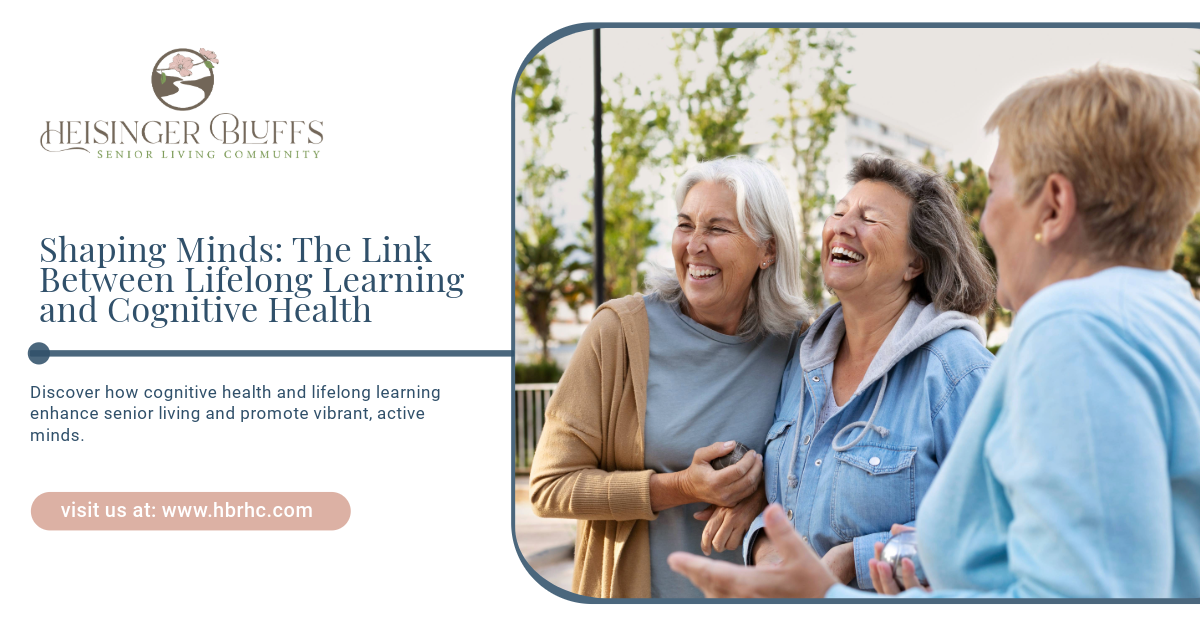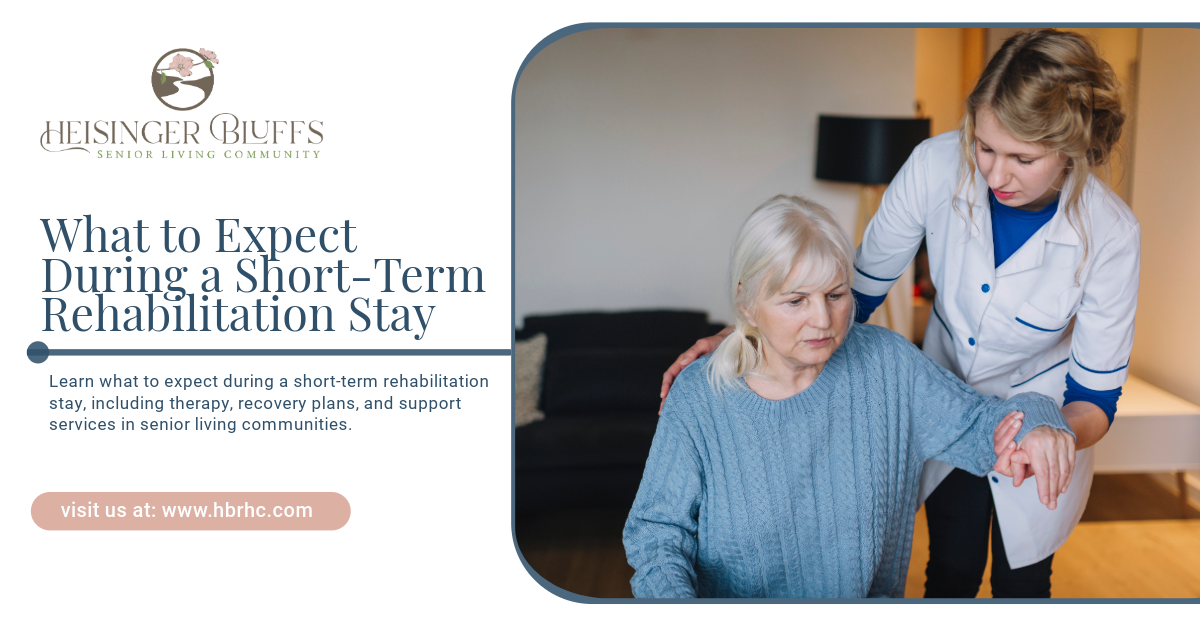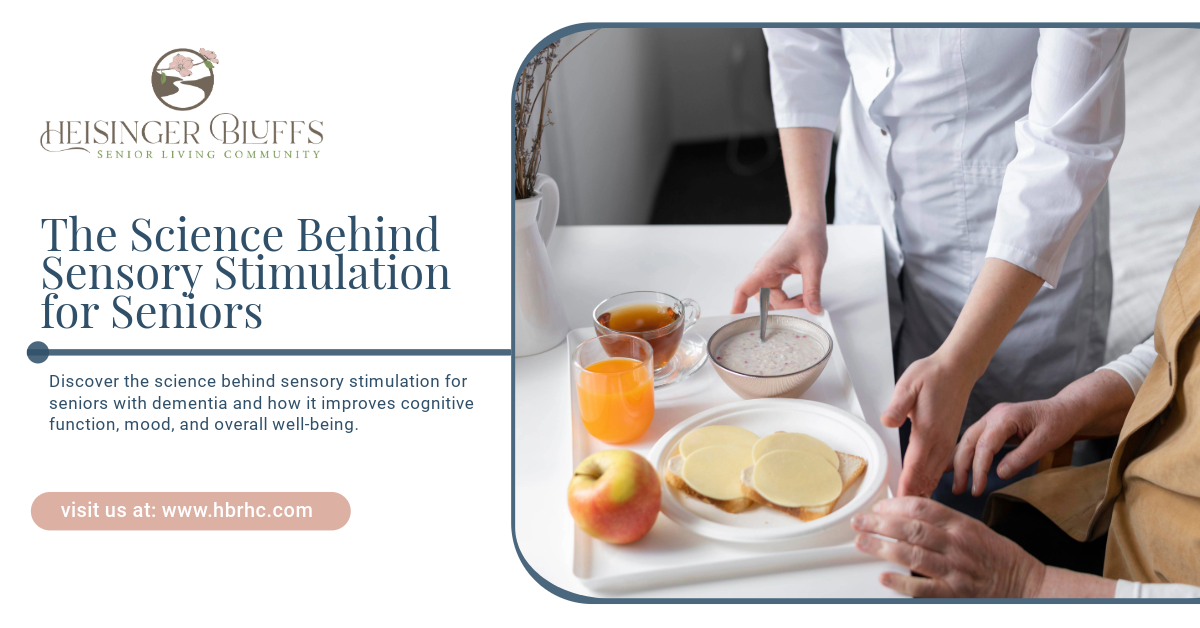Get in touch
Shaping Minds: The Link Between Lifelong Learning and Cognitive Health

Lifelong Learning and Cognitive Health
Lifelong learning plays a vital role in maintaining cognitive health throughout an individual's life. Continued engagement in learning activities promotes brain function and can effectively counteract the challenges associated with aging.
Impact of Neurogenesis on Cognitive Health
Neurogenesis, the process of generating new neurons, significantly impacts cognitive health. Research shows that neurogenesis continues throughout life, allowing individuals to create new synapses based on their experiences, which is essential for memory retention. This ongoing process is critical for the health of the hippocampus, the brain region responsible for memory, and is particularly relevant for both adults and seniors.
Participating in mentally stimulating experiences is crucial for cognitive fitness. Activities such as reading, creating art, dancing, playing board games, and learning new skills contribute to reduced risks of cognitive decline and dementia.
| Activity | Benefits |
|---|---|
| Reading | Enhances vocabulary and comprehension |
| Dancing | Improves coordination and physical health |
| Board Games | Stimulates critical thinking and problem-solving |
| Creating Art | Encourages creativity and emotional expression |
| Learning New Skills | Builds confidence and increases adaptability |
Role of Myelin in Cognitive Function
Myelin is the protective insulation around nerve fibers, essential for the efficient transmission of nerve signals. As individuals age, myelin production often declines, which can lead to slower signal transmission and cognitive function declines. Engaging in learning and cognitive activities can promote the formation of new connections between nerve cells and support myelin maintenance. This is vital for sustaining cognitive abilities as one ages.
By promoting lifelong learning, individuals can not only enhance their cognitive skills but also foster a supportive environment that benefits mental health and well-being. The connection between lifelong education and cognitive vitality is a crucial factor for families considering senior living options. For additional insights on activities that can improve brain health, explore brain exercises for seniors or read about the benefits of lifelong learning for seniors.
Continuous Learning Benefits
Engaging in lifelong learning is essential for maintaining cognitive health, especially among older adults. This section highlights the significance of neuroplasticity and the importance of mental stimulation.
Neuroplasticity and Cognitive Health
Neuroplasticity refers to the brain's ability to adapt and change throughout a person's life. Studies have shown that neurogenesis, which is the formation of new neurons, continues even in adulthood. This ability to form new synapses based on experiences plays a crucial role in memory preservation and cognitive function.
Engaging in mentally stimulating activities promotes neuroplasticity by encouraging the formation of new connections between nerve cells. Such activities may include puzzles, reading, learning new skills, or participating in creative arts. These engagements can also potentially increase myelin production, which is important for the efficient transmission of signals in the brain.
| Type of Activity | Cognitive Benefit |
|---|---|
| Learning a new language | Enhances memory and problem-solving skills |
| Playing musical instruments | Improves coordination and cognitive flexibility |
| Engaging in discussions | Boosts critical thinking and social cognition |
Incorporating continuous learning into daily routines can significantly enhance cognitive resilience in older adults and promote lifelong cognitive health.
Importance of Mental Stimulation
Mental stimulation is vital for preserving and enhancing cognitive function among older adults. Research indicates that engaging in cognitive activities can lead to improved brain health and may help delay the onset of cognitive decline.
Continuous learning not only encourages mental stimulation but also contributes to overall psychological well-being. It provides a compensatory strategy for strengthening an individual’s mental reserve, allowing older adults to maintain autonomy and fulfillment in everyday life.
Activities that contribute to mental stimulation include:
- Solving puzzles and brain games
- Taking classes or workshops
- Participating in community events
- Reading literature or engaging in discussion groups
By maintaining a regular engagement in these activities, individuals can actively promote cognitive health while enjoying the benefits of lifelong learning. For more information on effective strategies, visit our articles on brain exercises for seniors and benefits of lifelong learning for seniors.
Cognitive Training for Older Adults
Cognitive training plays a crucial role in promoting cognitive health and lifelong learning among older adults. This approach focuses on enhancing or maintaining brain functions through regular mental activities, targeting essential cognitive abilities such as working memory, executive function, and problem-solving skills.
Enhancing Cognitive Abilities
Cognitive training has shown promise in sharpening mental abilities that typically decline with age. Activities designed to improve processing speed, reaction time, decision-making, short-term memory, and planning skills can aid in reducing the risks of age-related memory problems. For instance, a 2016 study highlighted that training aimed at enhancing processing speed resulted in a decreased risk of developing dementia in the future.
Here’s a summary of the cognitive abilities that cognitive training can enhance:
| Cognitive Ability | Impact of Training |
|---|---|
| Processing Speed | Improved reaction and decision-making |
| Memory | Better short-term memory retention |
| Executive Function | Enhanced planning and organization |
Through consistent engagement in cognitive exercises, older adults can sharpen their mental faculties, fostering greater independence and overall well-being. For more effective techniques, consider exploring brain exercises for seniors.
Real-World Benefits of Cognitive Training
The benefits of cognitive training extend beyond the classroom or training environment. Research indicates that cognitive training can lead to lasting real-world improvements, enhancing daily functions such as better medication recall. These improvements help older adults maintain their mental abilities and independence as they progress in age.
Additionally, cognitive training has demonstrated potential in improving other aspects of life for seniors, including:
| Real-World Benefit | Description |
|---|---|
| Medication Recall | Improved ability to remember medication schedules and doses |
| Independence | Increased confidence in managing daily tasks |
| Social Engagement | Enhanced interaction through group training activities |
Participating in cognitive training not only supports individual mental health but also fosters social connections, which have been associated with positive outcomes in older adults. Strong social ties contribute to longer life, better health, and reduced depression. For further insights on lifelong learning and its benefits, visit our article on benefits of lifelong learning for seniors and explore how lifelong learning for older adults can enhance cognitive health and create fulfilling experiences.
Social Engagement and Cognitive Health
Engagement in social activities is a critical factor in maintaining cognitive health and promoting lifelong learning. Research indicates that social ties and participation in group settings can significantly influence cognitive function and overall well-being in older adults.
Benefits of Social Ties
Social ties provide emotional support and cognitive stimulation, which are essential for psychological well-being. Lifelong learning within a social context, such as classes, workshops, or community events, creates opportunities for connection among peers. Engaging with others not only fosters friendships but also encourages discussions that challenge the mind.
Studies show that continuous participation in lifelong learning can have a sustaining effect on older adults' psychological well-being, especially for those who may be classified as 'vulnerable'. The autonomy that comes from being part of a community can enhance the quality of life for seniors.
| Benefit | Description |
|---|---|
| Emotional Support | Reduces feelings of loneliness and supports mental health. |
| Cognitive Stimulation | Encourages interaction, leading to mental engagement and learning. |
| Increased Quality of Life | Enhances feelings of fulfillment and autonomy in everyday living. |
Influence of Social Participation
Involvement in social activities through lifelong learning not only contributes to cognitive health but also enhances subjective well-being. Regular social interaction allows older adults to form connections that promote happiness and provide meaning in life.
Participation in non-formal and non-credit learning has been linked to improved psychological well-being and overall health for seniors. When older adults engage in these programs, they often develop social and psychological reserves that positively influence their cognitive health over time.
| Influence | Description |
|---|---|
| Psychological Well-being | Continuous learning contributes to mental health and vitality. |
| Social Connections | Fosters friendships and community ties, reducing isolation. |
| Lifelong Learning Benefits | Enhances memory, problem-solving skills, and creativity. |
By encouraging social engagement through lifelong learning opportunities, families can support their loved ones in maintaining cognitive health. Those looking to understand more about the positive effects of lifelong learning can refer to our articles on benefits of lifelong learning for seniors and lifelong learning and memory improvement.
Nutritional Impact on Cognitive Health
Diet plays a significant role in maintaining cognitive health and promoting lifelong learning. The foods individuals consume can influence brain function, mood, and overall cognitive well-being. This section examines the effects of various diets on brain functionality and the interconnectedness of gut health and cognitive performance.
Effect of Diets on Brain Function
Research indicates that certain diets can either enhance or impair brain function. Diets high in refined sugars are linked to diminished cognitive abilities, increased inflammation, and worsened symptoms of mood disorders such as depression. In contrast, adhering to traditional diets like the Mediterranean diet or traditional Japanese diet, which consist of abundant vegetables, fruits, unprocessed grains, fish, and seafood, can result in a 25% to 35% lower risk of depression when compared to typical Western diets filled with processed and refined foods.
| Diet Type | Key Components | Associated Cognitive Benefits |
|---|---|---|
| Mediterranean Diet | Vegetables, fruits, unprocessed grains, fish | Lower risk of depression, improved mood |
| Traditional Japanese Diet | Seafood, unprocessed foods, vegetables | Lower risk of cognitive decline |
| Western Diet | Processed and refined foods | Increased risk of mood disorders and inflammation |
Gut Health and Cognitive Function
The link between gut health and cognitive function is becoming increasingly clear. The intestinal microbiome, made up of billions of beneficial bacteria, significantly influences the production of neurotransmitters like serotonin, which is vital for mood regulation. Fermented unprocessed foods, often found in traditional diets, act as natural probiotics, promoting gut health and potentially affecting inflammation, mood, and energy levels.
The interconnected nature of diet, gut health, and cognitive function underscores the importance of maintaining a healthy diet for cognitive preservation. Nutritional psychiatry highlights how food choices have direct implications on emotions, behaviors, and the composition of gut bacteria.
In summary, both diet and gut health play crucial roles in cognitive health and lifelong learning. Adopting healthier eating habits can support cognitive function, enhance mental well-being, and encourage an overall healthier lifestyle. For more ways to support cognitive health through activities, explore brain exercises for seniors and the benefits of lifelong learning for seniors.
Preventing Cognitive Decline
Preventing cognitive decline is crucial for maintaining cognitive health, particularly in older adults. Understanding the risk factors for dementia and implementing effective strategies can provide significant benefits for those in senior living communities.
Risk Factors for Dementia
Numerous studies have identified key lifestyle choices and interventions that can influence the risk of developing dementia. The following table summarizes 12 key risk factors:
| Risk Factor | Description |
|---|---|
| Low Education | Limited formal education increases the risk of dementia. |
| Limited Social Interaction | Poor social relationships are associated with cognitive decline. |
| Hypertension | High blood pressure affects brain function. |
| Hearing Impairment | Hearing loss can weaken cognitive abilities. |
| Smoking | Tobacco use is linked to a higher risk of cognitive issues. |
| Obesity | Excess weight can negatively impact brain health. |
| Depression | Mental health issues can elevate dementia risk. |
| Physical Inactivity | Lack of exercise contributes to cognitive decline. |
| Diabetes | Can lead to cognitive impairment. |
| Excessive Alcohol Consumption | High alcohol intake is detrimental to cognitive health. |
| Traumatic Brain Injury | Past head injuries can increase dementia risk. |
| Air Pollution | Environmental factors can impact overall brain health. |
These factors underline the importance of adopting healthy habits and interventions to mitigate risks associated with cognitive decline.
Strategies for Cognitive Preservation
Several effective strategies can help protect cognitive health and promote lifelong learning:
- Engaging in Lifelong Learning: Participants in lifelong learning programs benefit from mental and social stimulation. Activities such as attending lectures, joining reading groups, and partaking in community education can lower the risk of cognitive decline. Benefits of Lifelong Learning for Seniors.
- Maintaining Strong Social Ties: Social engagement is a crucial element of cognitive preservation. Engaging in social events and forming connections with others can combat loneliness and promote mental agility. Studies show that poor social relationships correlate with cognitive decline.
- Incorporating Regular Physical Activity: Physical exercise promotes not only physical well-being but also cognitive health. Activities like walking, dancing, or gardening can enhance brain function.
- Healthy Diet: Consuming a balanced diet rich in fruits, vegetables, whole grains, and lean proteins supports overall brain function. Specific diets tailored for brain health have been shown to improve cognitive abilities.
- Mental Exercises: Regularly participating in brain exercises improves cognitive skills and memory. Games, puzzles, and memory exercises can stimulate the mind. For more detailed information, visit our article on brain exercises for seniors.
By focusing on these strategies and minimizing risk factors, families can help their loved ones maintain cognitive health while enjoying the benefits of lifelong learning.



Want to know more?
We will get back to you as soon as possible.
Please try again later.
You May Also Like To Read
Heisinger Bluff’s Life Plan Community is here to make your senior years safe, stimulating and enjoyable so that you can savor the present, knowing the future will be taken care of.
QUICK LINKS
CONTACT
©2024. Heisinger Bluffs. All rights reserved.








